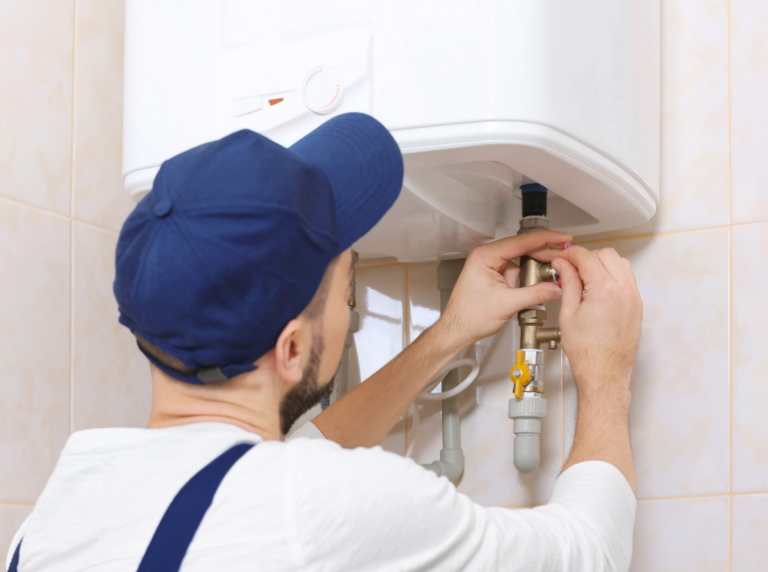
Understanding Water Heater Repair Versus Replacement Decisions
Determining whether your water heater needs repair or complete replacement affects both your comfort and budget. While some issues require simple fixes, others indicate your water heater has reached the end of its useful life. Understanding key warning signs, age factors, and repair cost considerations helps you make informed decisions that protect your home and maximize your investment.
Critical Age Considerations for Water Heaters
Expected Lifespan by Type:
Traditional tank water heaters typically last 8-12 years with proper maintenance. Tankless water heaters often function effectively for 15-20 years. Once your water heater approaches or exceeds these age ranges, replacement usually makes more financial sense than repairs. Check the manufacturer’s label or serial number to determine your unit’s age—this information guides replacement versus repair decisions.
Age-Related Failure Patterns:
Water heaters nearing the end of their lifespan experience increasingly frequent problems. If your 10-year-old tank water heater requires a second major repair within a year, replacement typically provides better long-term value than continued repairs on an aging system.
Warning Signs Indicating Replacement is Necessary
Rusty or Discolored Water:
Rust-colored hot water indicates internal tank corrosion that cannot be repaired. Once tank interiors corrode, the unit will eventually leak. If only hot water appears rusty while cold water runs clear, your water heater is failing. Replace corroded tanks immediately—waiting risks sudden failures causing extensive water damage to your Chicagoland home.
Leaking Tank or Pooling Water:
Water pooling around your water heater’s base signals tank failure requiring immediate replacement. Internal tank leaks cannot be repaired effectively. Small leaks worsen rapidly, potentially flooding basements and causing thousands in water damage. Never delay replacing leaking water heaters—the risk of catastrophic failure increases daily.
Insufficient Hot Water Supply:
If your water heater no longer provides adequate hot water for your household despite proper temperature settings, the heating elements or burners may be failing. While these components can be replaced, insufficient hot water combined with advanced age typically indicates replacement time rather than investing in repairs for an aging system.
Warning Signs Suggesting Repair May Suffice
Strange Noises and Rumbling:
Popping, rumbling, or banging sounds usually indicate sediment buildup in tank bottoms. Professional flushing removes sediment, restoring efficiency and reducing noise. This maintenance task extends water heater life and represents a cost-effective repair for younger units. However, excessive sediment in older units may indicate advanced deterioration.
Pilot Light or Ignition Problems:
Gas water heaters with pilot light issues or electronic ignition failures often need simple thermocouple or igniter replacements. These repairs cost significantly less than replacement and effectively restore function on units with remaining useful life. However, frequent ignition problems on older units may signal more serious issues.
Faulty Pressure Relief Valve:
Pressure relief valves occasionally fail or leak, requiring replacement. This straightforward repair protects your water heater from dangerous pressure buildup. Professional plumbers quickly replace these safety components, extending your water heater’s operational life when the tank itself remains sound.
Red Flags Demanding Immediate Professional Assessment
Critical Issues Requiring Expert Evaluation:
- Water heater making loud hissing or screaming sounds
- Gas odor near gas water heaters
- Electrical burning smell near electric units
- Continuously running water heater never reaching temperature
- Extreme water temperature fluctuations
- Visible corrosion on tank exterior or connections
- Moisture or condensation on tank surface
These conditions pose safety risks or indicate serious malfunctions requiring immediate professional diagnosis. Never ignore these warning signs—they can lead to dangerous situations or catastrophic failures.
Cost-Benefit Analysis for Repair Versus Replacement
The 50% Rule:
If repair costs exceed 50% of new water heater installation costs, replacement usually provides better value. This especially applies to units over seven years old. Investing significant money in aging equipment rarely makes financial sense when new, efficient models offer improved performance and warranties.
Energy Efficiency Considerations:
Modern water heaters operate significantly more efficiently than models from 10-15 years ago. Replacing aging, inefficient units reduces utility bills substantially. Energy savings often offset replacement costs within 3-5 years. Consider upgrading to tankless or high-efficiency models when replacing older conventional tanks.
Warranty Coverage:
Check existing warranty coverage before deciding. Many manufacturers provide 6-10 year warranties covering tanks and components. If your water heater remains under warranty, repairs may cost less than replacement. However, labor costs still apply even when parts are covered.
Preventive Maintenance Extending Water Heater Life
Annual professional maintenance of your water heater significantly extends water heater lifespan and prevents many common failures. Professional service includes flushing sediment, testing pressure relief valves, inspecting anode rods, and checking all connections. Regular maintenance catches developing problems before they become expensive emergencies.
Anode rod replacement every 3-5 years prevents internal tank corrosion, potentially adding years to water heater life. This relatively inexpensive maintenance task protects your investment and delays replacement costs.
Choosing Between Repair and Replacement
Consider these factors comprehensively: unit age, repair frequency, current problem severity, energy efficiency, and warranty status. Units under six years old with isolated problems usually warrant repair. Water heaters over ten years old experiencing major issues typically need replacement. Units between 6-10 years require case-by-case evaluation based on specific circumstances.
Bottom Line: Making the Right Water Heater Decision
Water heater repair makes sense for newer units with isolated problems, while replacement suits aging systems with multiple issues or major component failures. Units exceeding expected lifespan, showing rust or leaks, or requiring expensive repairs should be replaced. Professional plumbers provide honest assessments helping you make informed decisions protecting your home and budget.
Next Steps for Water Heater Issues
Your Water Heater Action Plan:
- Determine your water heater’s exact age from serial number
- Document all symptoms and problems you’ve noticed
- Contact licensed plumbers for professional assessment
- Request both repair and replacement estimates
- Compare energy efficiency of current versus new models
- Schedule annual maintenance to prevent future problems
Need reliable plumbing help?
Contact Suburban Plumbing Experts today at (708) 729-9249

